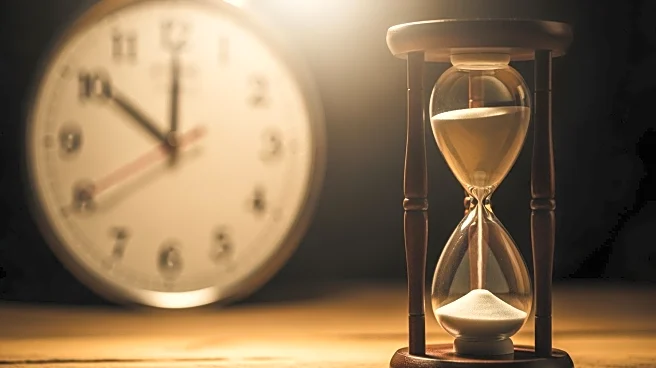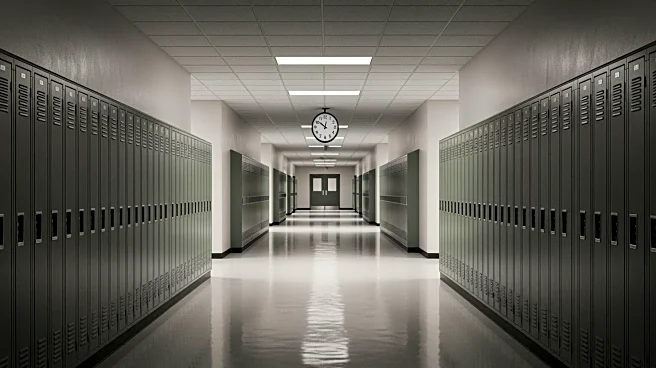What's Happening?
Daylight saving time (DST) ended today in the United States, with clocks set back one hour at 2 a.m. This biannual time change, which occurs on the first Sunday of November, has reignited discussions about
the potential abolition of time changes altogether. The Uniform Time Act of 1966 standardized the practice, but its relevance is increasingly questioned. Some politicians and organizations advocate for the permanent adoption of either DST or standard time, citing disruptions to sleep patterns and daily schedules. The National Sleep Foundation and other health organizations argue for permanent standard time, suggesting it aligns better with human biological rhythms.
Why It's Important?
The debate over daylight saving time has significant implications for public health, safety, and economic productivity. Critics of the time change point to increased risks of cardiovascular events, mental health issues, and accidents due to disrupted sleep patterns. The economic impact is also notable, with potential losses in productivity and increased healthcare costs. A 2024 YouGov poll indicated that 63% of Americans favor eliminating time changes, reflecting widespread public support for reform. However, there is division over whether to adopt permanent DST or standard time, with each option having distinct advantages and drawbacks.
What's Next?
Efforts to legislate a permanent time system have been ongoing, with the bipartisan Sunshine Protection Act proposing permanent DST. Although it passed the Senate in 2022, it has not yet become law. State-level initiatives are also in progress, with varying degrees of success. Advocates for change encourage citizens to contact their representatives to express their preferences. The ongoing debate suggests that further legislative attempts are likely, with potential shifts in public policy depending on political and public pressure.
Beyond the Headlines
The discussion around daylight saving time touches on broader themes of how societal norms and historical practices adapt to modern scientific understanding. The push for permanent standard time highlights a growing recognition of the importance of aligning societal practices with natural human rhythms. This debate also reflects a broader trend of questioning long-standing traditions in light of new evidence and changing public attitudes.










